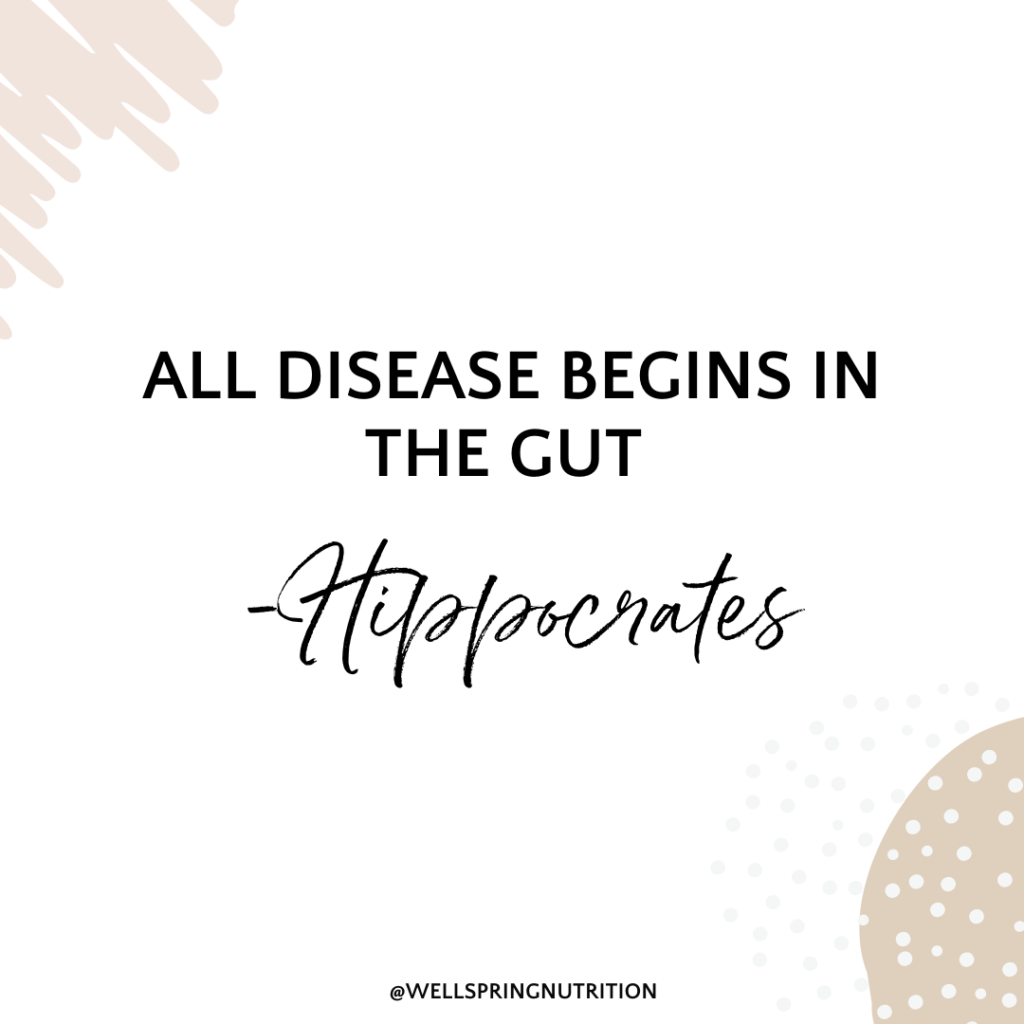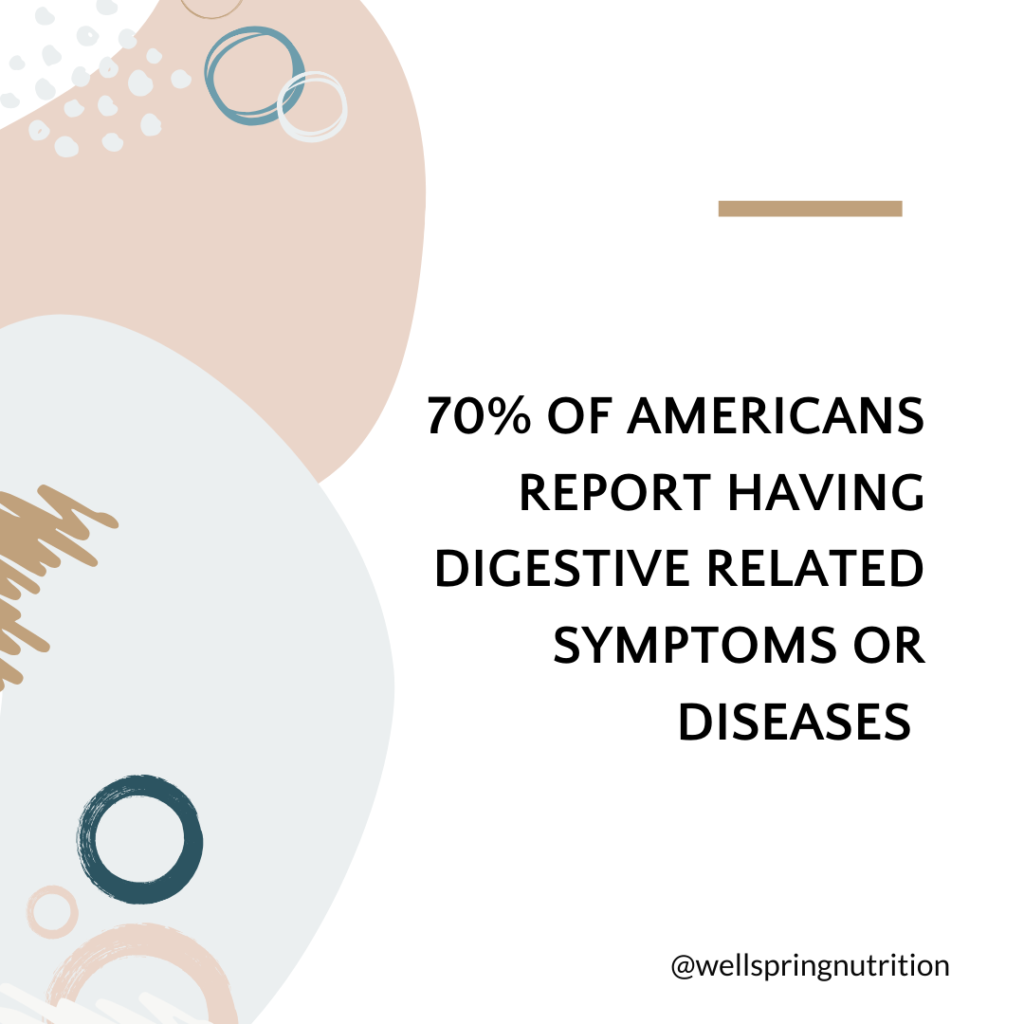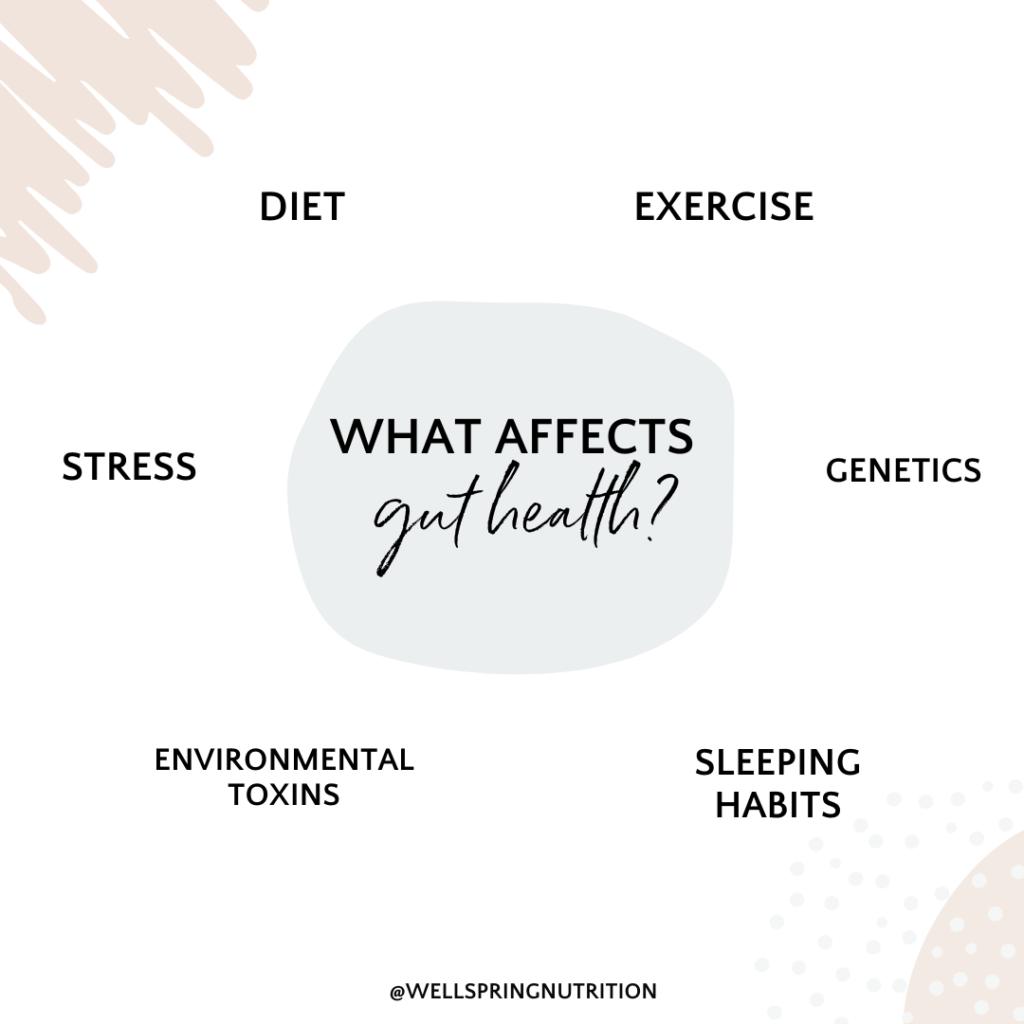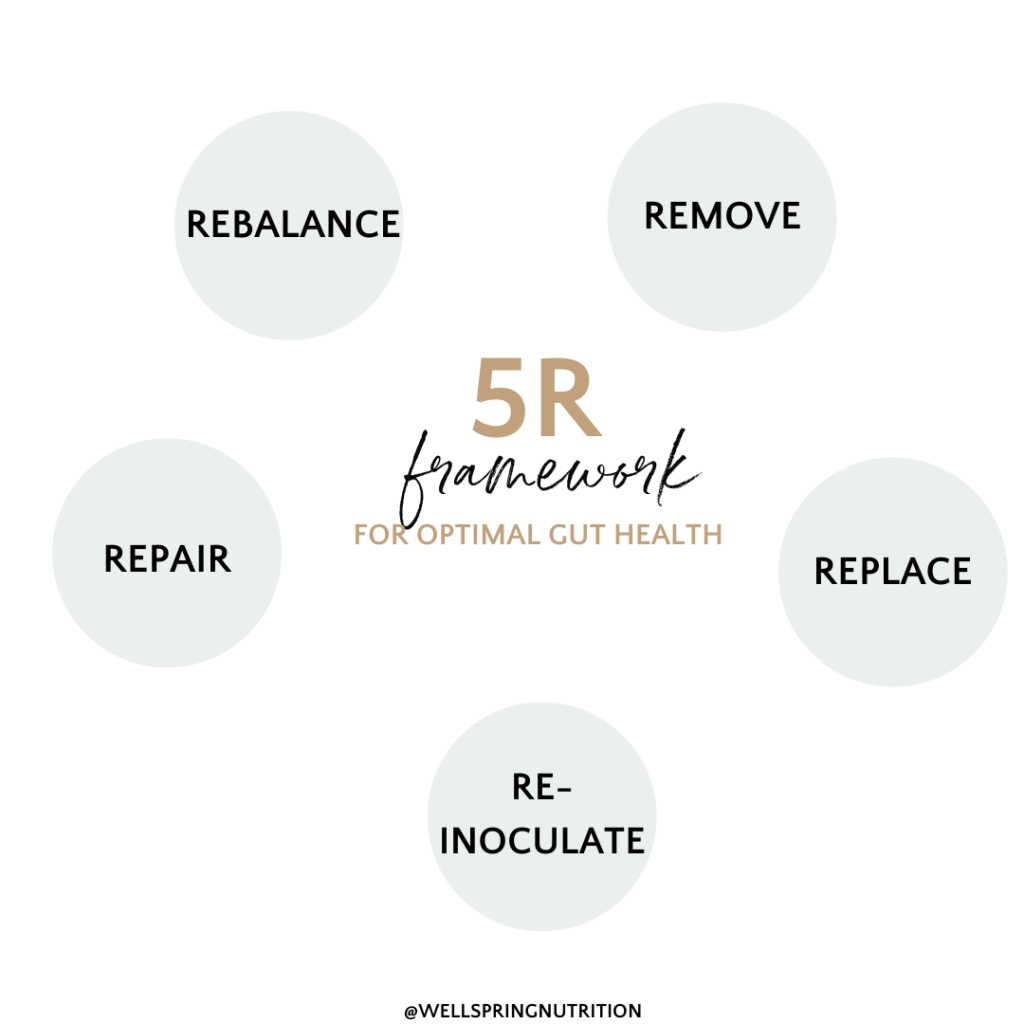Registered dietitian, functional nutritionist, & your new fertility BFF. I'm passionate about helping women thrive during preconception, pregnancy, and postpartum.
Nutrition
PCOS
Fertility
View All
Explore the blog
Hi, I'm Anabelle
Non-toxic Living
Work with our team
5R Approach to Gut Health
Harnessing the Power of 5R’s for Optimal Gut Health
If you’ve read my other posts about how gut health is so important for fertility, then you’re probably wondering how you can approach the process of healing. Enter: the 5R Framework for Gut Healing.

*While I recommend working with a health practitioner to help guide you through this process, I thought I’d break down a very popular approach to healing the gut. Please know that an individualized approach is best when trying to heal digestive issues.
Why address gut health first?
Dysfunction of one’s GI system can have a downward spiral effect on overall health. From a functional lens we recognize the interconnectedness between:
- Digestion / Absorption
- GI Flora- balance vs dysbiosis
- Immune regulation and inflammation
- Gut brain axis
- Enteric nervous system
- Intestinal Permeability

Going beyond just poor digestion, the gut brings the whole body in balance. The gut is the body’s second brain and is ground zero for our immune system.
The GI track makes 75% of neurotransmitters, contains ⅔ of immune tissues, contains 10x more cells than rest of body combined, houses genome 100x larger than human genome, and has a metabolic activity greater than the liver.
So, where do we begin?
Of course, with the diet. Our gut health depends on eating a nutrient-dense diet, full of fiber, and diversity (think about getting 30 different plant sources of food per week!)
You can’t expect to feel like a million bucks if you’re eating from the dollar menu.
Eating a Standard American Diet (SAD) puts you at higher risk for a leaky gut (intestinal permeability) and dysbiosis. If you’re eating junk, you probably feel like junk, just sayin.
Other things that impact gut health are antibiotics, infection, genetics, sleeping habits, environmental toxins, stress, and exercise.

Our gut microbiota are responsible for may things, including:
- Digestion of lactose and proteins
- Balance intestinal pH
- Benefits to bowel habits – microbiota can help IBS symptoms, alleviate diarrhea, and peristalsis
- Reduce intestinal inflammation and are immune strengthening. (Good bacteria can prevent infections.)
- Essential Fatty Acid and Short-Chain Fatty Acid production
- Conversion of flavonoids
- Protecting against pathogens (food infections, and can decrease severity of an infection)
- Break down toxins and protect against toxic burden
- Protect and modulate autoimmune diseases
The 5R Framework for Gut Health:

- Process to help reduce inflammation and help to heal the gut
- Targeted, individualized intervention
- Process to normalize critical gastrointestinal functions
Remove
REMOVE:
- Foods to which an individual is sensitive, intolerant or allergic (elimination diet, food journal, and detailed history — food is information!)
- Poor quality, processed foods
- Pathogenic microflora (bacteria, fungi, parasites)
- Toxins, chemicals, environmental stressors such as pollutants
- Chronic stress
This step is really not about losing weight, calorie restriction, or removing food groups just for the sake of it. This is about identifying food sensitivities and triggers, honoring your body’s hunger cues, and really about the QUALITY of fuel you’re eating.
Replace
- Providing support for proper gastric acidity
- Betaine HCL tablets taken with protein meals (if you have low stomach acid)
- Digestive enzymes with acid pH range
- Digestive bitters
- Apple cider vinegar
- Lifestyle factors — reduce stress, increase exercise, sleep

Re-Inoculate
This stage is about a supportive reintroduction of beneficial GI microflora (pre-biotics, probiotics, etc.) to achieve a more desirable balance to intestinal microbiome.
Some people may find out that they have too much of one type of bacteria, and not enough of another. Doing a GI MAP functional gut health test is an excellent way of identifying this.
Also, include more fermented and cultured foods into the diet to add more beneficial bacteria.
Repair
This step is all about providing nutritional support for healing and regeneration of the GI mucosa. Some things to consider would be:
- Glutathione
- Vitamins A, D, C and E
- Zinc
- Slippery elm or marshmallow root for mucosal support
- Immunoglobulins for GALT function (gut-associated lymphoid tissue)
- Phytonutrients and anti-inflammatories like curcumin, EPA and DHA
Rebalance
The last step is all about rebalancing- this means anything from scheduling relaxation time, to eating more mindfully and reducing stress.
Other helpful techniques include yoga, meditation, breath-work or psychotherapy. In fact, a recent study showed that when looking at hypnotherapy compared to the low FODMAP diet, they both had similar results for people with IBS.
Similarly, a study looking at 12 weeks of the low FODMAP diet vs. 12 weeks of gut-directed yoga therapy found that the yoga flow had similar outcomes as the low FODMAP diet, which is considered the gold standard diet for people with IBS.
This research is still new and emerging, but stress no doubt plays a huge role in gut health.
If you’re interested in learning more about functional gut health testing, or how I work with my fertility clients on gut health – feel free to book a free 30 minute call with me to see how I may be able to help you on your journey.
Please Note: The information on this website is provided for educational purposes only and should not be construed as medical advice. Please consult with your healthcare practitioners before undertaking any changes in your diet or adding supplements.
References
Intestinal Microbiome in Irritable Bowel Syndrome before and after Gut-Directed Hypnotherapy. (2018) https://www.ncbi.nlm.nih.gov/pubmed/30453528
Hypnotherapy Provides IBS Relief (2019) https://jamanetwork.com/journals/jama/article-abstract/2722766
Randomised clinical trial: yoga vs a low-FODMAP diet in patients with irritable bowel syndrome (2018) https://www.ncbi.nlm.nih.gov/pubmed/29076171
Leave a Reply Cancel reply
The Preconception Playbook
This free playbook provides specific actionable tips to get started on your fertility journey, as well as what to avoid while you're trying to conceive.
Get the free playbook
Functional nutrition for women & couples trying to conceive
Get the Preconception Playbook
Actionable tips to get started on your fertility journey, as well as what to avoid while you're trying to conceive.

Be the first to comment